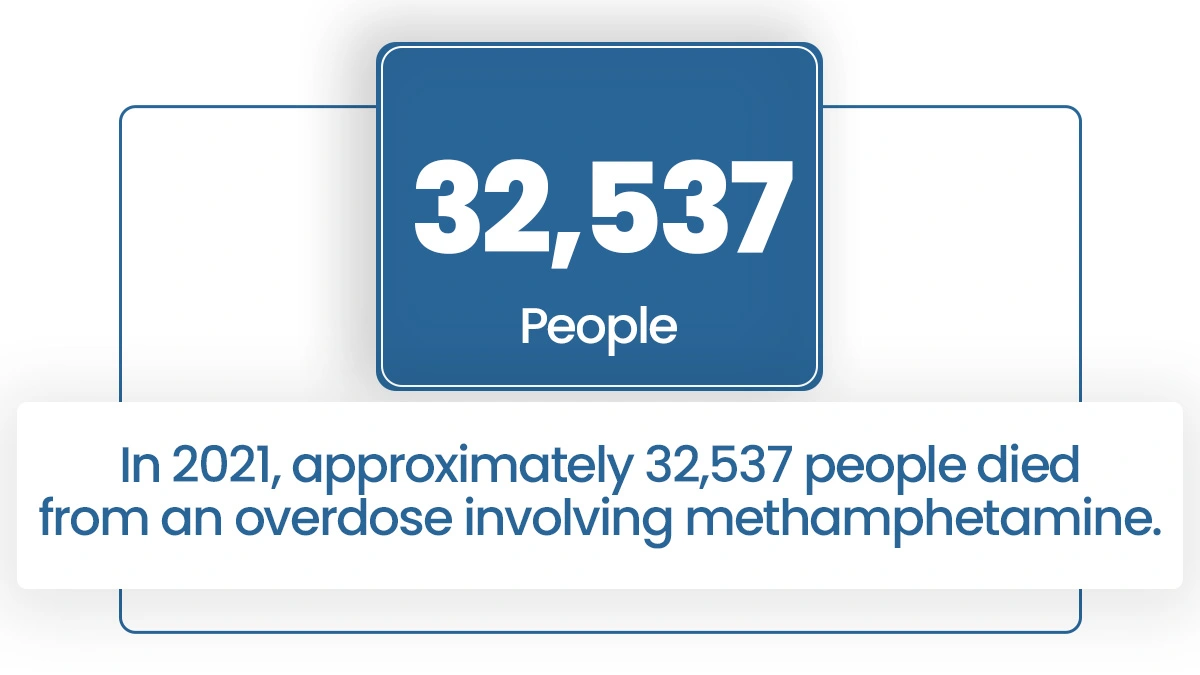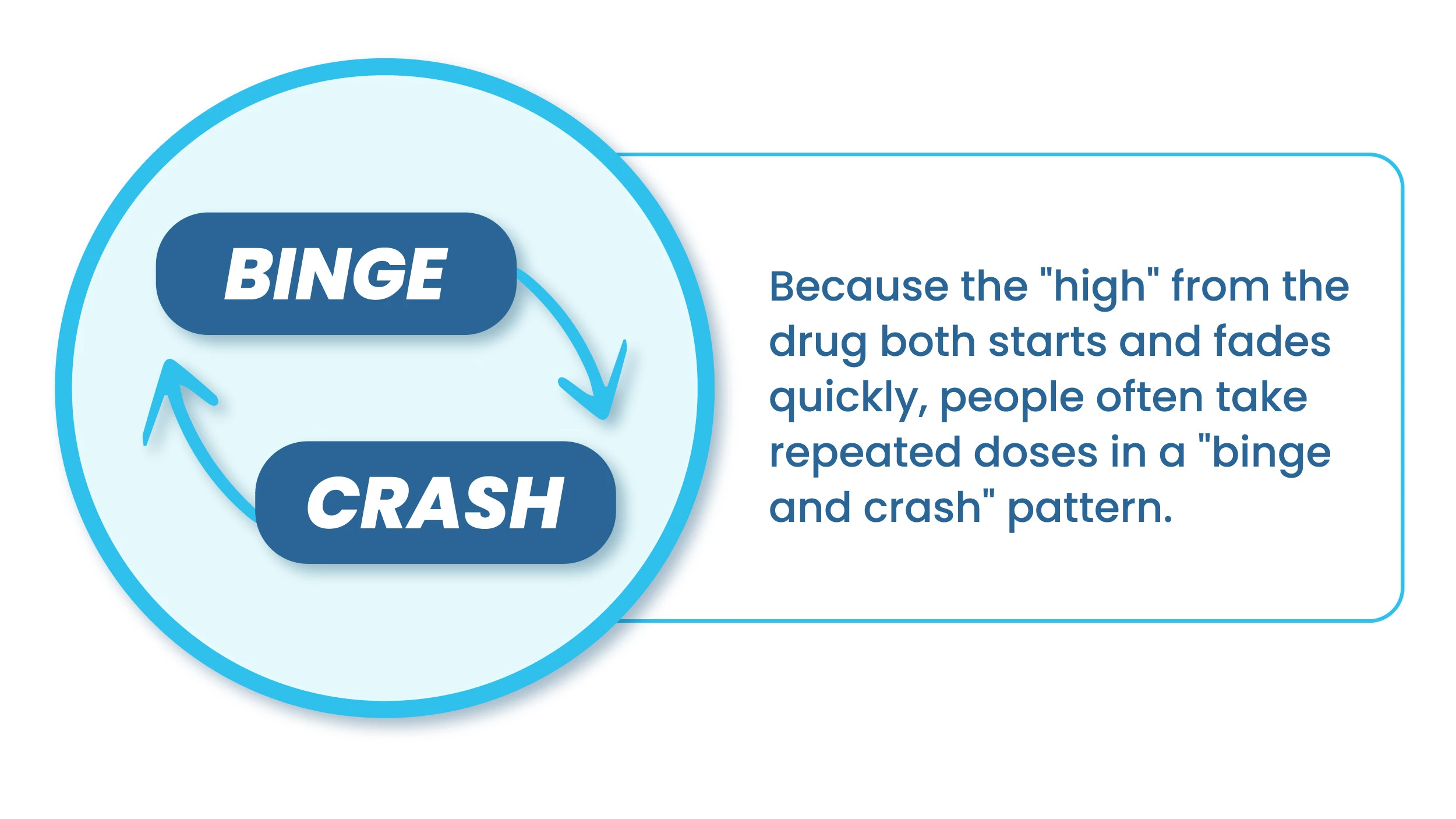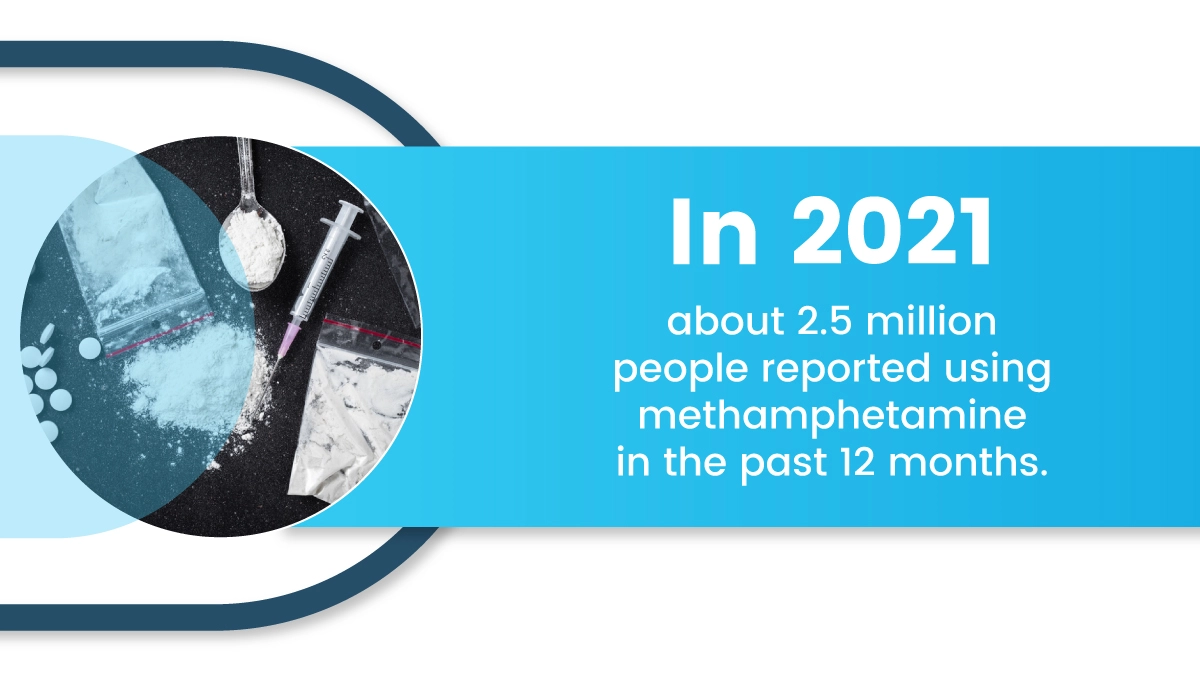The Need for Meth Treatment in Arkansas
Methamphetamine (meth) addiction is a severe problem in Arkansas and the United States. According to the National Survey on Drug Use and Health conducted by the National Institutes of Health, in 2019, approximately 1.1 percent of Arkansas residents reported using meth.
The state has also seen an increase in meth-related deaths in recent years, and the United States Drug Administration has been working to address the rise in meth addiction.
Methamphetamine is a highly potent drug that affects the central nervous system. Regular use can lead to many physical and psychological health issues. Fortunately, treatment options in Arkansas are available for people struggling with meth addiction.
This article will provide a deep look at the treatment services available in the state.
Treatment Services
Arkansas offers a range of treatment services for people struggling with meth addiction. These services include:
This program provides a structured and safe atmosphere for people to receive treatment for meth addiction.
Allows people to receive treatment while continuing to live at home.
MAT is a treatment method that merges medication and therapy to help people recover from meth addiction.
Support groups, such as Narcotics Anonymous (NA) and Crystal Meth Anonymous (CMA), can provide people with a helpful community of peers who learn the challenges of meth addiction.
This therapy can help people change their attitudes about drug use, learn new coping skills, and address the underlying issues that led to their addiction.
Can help people and their families address the impact of meth addiction on their relationships and work together to set strategies for recovery.
Such as meditation and art therapy, can provide people with tools for managing stress and improving their overall well-being.
Not all treatment services may be appropriate for people struggling with meth addiction, as treatment may vary depending on the addiction phase.

Key Takeaways
Meth addiction is a severe problem in Arkansas and the United States. Arkansas offers a range of treatment services for people struggling with meth addiction.
- Meth use can lead to significant physical and mental health issues.
- People with a family history of addiction may be at increased risk of growing meth addiction.
- Peer pressure can also play a vital role in the growth of meth addiction.
- Individual therapy and evidence-based therapy can help people overcome addiction.
The Haven Detox-Little Rock team is ready to support you and your loved ones. Contact us at (501) 271-3342 and start your addiction-free journey.
Symptoms of Meth Addiction
Meth addiction can be hard to recognize, as people who use meth may initially undergo a “high” that includes increased energy, euphoria, and confidence. According to the Substance Abuse and Mental Health Services Administration, long-term meth use can lead to significant physical and mental health issues, including anxiety, depression, and psychosis.
However, meth abuse can lead to a range of physical and psychological symptoms, including:
- Increased heart rate and blood pressure
- Irregular heartbeat
- Insomnia
- Decreased appetite
- Weight loss
- Dental problems
- Skin sores
- Hallucinations and delusions
- Paranoia
- Anxiety and rage
- Depression
When to Seek Treatment…
If you know someone undergoing symptoms of meth addiction, advise them to seek treatment.
Meth addiction can lead to severe physical and psychological health issues. It can be challenging to crush without professional help from Medical Sciences. Seeking treatment earlier can increase the likelihood of a successful recovery.
If a Loved One Needs Help…
If you see someone you love using drugs like meth, it’s vital to be friendly and understanding when you talk to them. Don’t say mean things or blame them, but try to feel what they are going through and offer to help them.
Tell them to see a doctor who can help them get better and inform them where to find help. It’s important to know that getting better takes time, and it might not be easy, but it’s possible to stop using drugs and have a healthy life.
It’s important to remember that drug addiction is an illness that can affect anyone, and it’s not something to be ashamed of. Your loved one may feel embarrassed or scared to seek help, but by offering your support and understanding, you can help yourself, or your loved ones take the first step toward recovery.

Causes of Meth Addiction
Meth addiction is a complex disorder that a mixture of genetic, environmental, and psychological factors can cause. Some of the most common causes of meth addiction include:
There may be a genetic bias to addiction, which means people with a family history of addiction may be more likely to develop habits themselves.
Openness to stress, trauma, poverty, and social isolation can increase the risk of forming an addiction.
Meth is a highly addictive drug that can lead to physical and psychological obsession after just a few uses. Regular use of meth can lead to changes in the brain that make it difficult to quit using the drug.
People with a family history of addiction may be at increased risk of growing meth addiction.
It is because addiction can have a genetic element, meaning specific genes from one generation to the next. It also raises the likelihood of forming a habit.

Risk Factors With Meth Addiction
While anyone can develop meth addiction, certain factors may raise a person’s risk. Learning these risk factors can help people and loved ones take steps to prevent addiction.
The following are the risk factors that can affect a person slowly.
Drug Access
One of the highly potent risk factors for meth addiction is access to the drug. People who live in areas with high rates of meth use or who have easy access to the drug may be more likely to forge an addiction.
Peer Pressures
Peer pressure can also play a vital role in the growth of meth addiction. Many people who use meth are raised to the drug by friends or family members who also use it.
Further, people with social anxiety or needing to fit in with a specific group are likelier to try meth and develop an addiction.
Lack of Supervision
Lack of supervision can also increase a person’s risk of developing meth addiction. Children and teens in families with drug use or less parental care may be more likely to test for drugs, including meth.
In addition, people who lack social support or have a history of trauma or abuse may be more vulnerable to addiction.
Other risk factors for meth addiction may include mental health issues, such as depression or anxiety, and a history of substance abuse or addiction.
Learning these risk factors can help people and loved ones prevent addiction, such as seeking professional help for mental health issues, scanning drug access, and providing good care and support for children and teens.
If addiction does develop, talk to the doctor or expert help as soon as possible. It can boost the likelihood of a successful recovery.
Effects of Methamphetamine
Meth use can have a range of adverse effects on a person’s safety, relationships, employment, and health.
Learning these effects can help people and loved ones make informed decisions about drug use.
One of the potent effects of meth use is its impact on a person’s safety. The drug can cause people to feel dirty and engage in risky behaviors. It may include driving under the effect or partaking in unsafe sexual practices.
Meth use can also lead to paranoia, hallucinations, and violent behavior, putting the person and those around them at risk.
Meth use can also hurt a person’s relationships with loved ones. The drug can cause people to become isolated, withdrawn, and paranoid. It can lead to unhealthy relationships with family members, friends, and romantic partners.
Further, meth use can lead to awful behavior and mood swings, making it difficult for loved ones to maintain a stable and healthy relationship with the person using meth.
Meth use can also impact a person’s ability to hold employment. The drug can cause people to become unreliable and miss work. It can lead to job loss and financial flux.
In addition, meth use can impact a person’s ability to perform job duties, leading to poor job performance and termination.
Meth use can have a range of adverse effects on a person’s physical and mental health. The drug can cause people to share various signs, including weight loss, insomnia, anxiety, and depression.
In addition, regular meth use can lead to severe health issues, including heart disease, stroke, and brain damage. Long-term drug use can also lead to addiction, impacting a person’s health and well-being.

-
Related Pages
- Beyond Addiction: How Meth Affects the Body
- Detecting Meth in the Body
- How Long Does Meth Stay in Your System?
- Meth’s Impact On The Body: Euphoria To Desolation
- Meth: Decoding its Addictive Power
- Meth: Prolonged Effects On Mind and Body
- Methamphetamine Addiction And Recovery
- Power of Meth: Understanding Its Addictive Nature
Get Help
If you’re suffering from Methamphetamine addiction, getting help as early as possible is essential. Methamphetamine addiction is a severe illness that can lead to many problems. Getting help as early as possible can significantly improve your chances of recovery. Call us to get started with treatment.
Our resources are available to help you overcome your addiction with evidence-based therapies and innovative treatments proven by medical science to effectively manage your addiction. Our admissions counselors can help you learn more about the disease and how to keep it out of your life. Contact us confidentially today.

Seeking Professional Treatment
If your loved one is struggling with meth addiction, seek help from an expert as soon as possible. Addiction is treatable and can achieve lasting recovery with proper support and treatment.
Getting professional help is vital in the recovery process for meth addiction. It may involve various methods, including detox, medication-assisted treatment, behavioral therapy, group counseling, and participation in a 12-step program.
The duration of treatment can vary, depending on the individual’s needs, and may last for several months or longer. Working with trained professionals specializing in addiction treatment can increase the chances of successful recovery.
Professional treatment is vital for persons who struggle with meth addiction. Individual and evidence-based therapy can help people overcome addiction, manage withdrawal symptoms, and develop coping skills to prevent relapse.
Here are some standard treatment options for methamphetamine addiction:
Medical Detox
Medical detox is a critical first step in treating meth addiction. Detox helps people safely manage withdrawal symptoms. It helps to prepare them for ongoing treatment.
People receive medical care and support during detox to ensure safety and comfort.


Dual Diagnosis Treatment
Meth addiction often co-occurs with mental health conditions like depression, anxiety, or bipolar disorder. Dual-diagnosis treatment manages addiction and mental health issues.
It provides people with complete support and treatment. Dual diagnosis treatment may include medication, therapy, and support groups.
Residential Treatment
Residential treatment is a highly structured and intensive treatment option for meth addiction. In residential treatment, people live in a treatment facility for an extended period, typically between 30 and 90 days.
During this time, they receive individual and group therapy. They can participate in support groups and learn coping skills to prevent relapse. Residential treatment provides people with a good atmosphere free from triggers and stressors that can lead to drug use.

Therapies
Adjunct Therapies
Adjunct therapies can complement traditional addiction treatment approaches. They provide people with additional support and coping skills.
Examples of adjunct therapies for methamphetamine addiction include:
CBT is a type of therapy that helps people identify and change negative thought patterns that lead to addiction.
It can help people express their emotions and process trauma in a non-verbal way.
Mindfulness meditation can help people manage stress and cravings, improve emotional regulation, and increase self-awareness.
Specific populations, such as veterans and first responders, may have unique treatment needs for methamphetamine addiction.
For example, they may have experienced trauma or have high-stress levels related to their profession.
Specialized treatment programs offering trauma-focused therapies, vocational rehab, and support groups for veterans and first responders may be available.
It is a therapy that helps people identify their reasons for seeking treatment and develop motivation to change their behavior.
Frequently Asked Questions (FAQ)
Where can I find residential meth treatment in Little Rock, AR?
There is good news if you or someone you know is struggling with meth addiction in Little Rock, AR. The Haven Detox-Little Rock is a treatment facility that can provide help for meth addiction. They are professionals in providing drug addiction care and have an alcohol rehab facility.
They offer different methods to help people quit meth, including medication-assisted treatment, counseling, and behavioral therapy.
If you want to learn more about The Haven Detox-Little Rock as a provider of Meth addiction treatment, contact us at 501-271-3342.
What’s the best way to quit meth addiction for good?
Quitting meth addiction for good can be difficult, but it is possible with the proper support and direction. Some of the most effective methods for quitting meth addiction include professional treatment, attending support groups, and making lifestyle changes.
Professional treatment may consist of various treatments and therapies. Support groups such as Narcotics Anonymous (NA), Crystal Meth Anonymous (CMA), and Alcoholics Anonymous (AA) can provide a helpful community that understands the challenges of addiction.
It’s vital to seek help and support from these groups to quit the habit.
Find Help at The Haven Detox-Little Rock
If you or a loved one is struggling with meth addiction, it’s vital to seek help as soon as possible.
The Haven Detox Little Rock is here to provide a safe and supportive atmosphere for people looking to beat their addictions.
However, we assure you that our facility has state-of-the-art amenities and a gracious staff to make your stay as restful and stress-free as possible.
Our professional experts are always ready to help you achieve long-term recovery. We offer treatment plans tailored to your needs, including medically supervised detox, therapy, and aftercare support.
Don’t let meth addiction retain your life. Contact us at (501) 271-3342 today and take the first step towards a brighter, healthier future.



